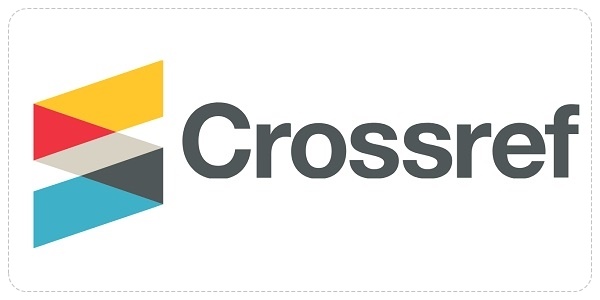Assessing Numeracy Skills Among Indonesian Students: A Comparative Study of Gender, Regional Disparities, and Study Habits
Abstract
Keywords
Full Text:
PDFReferences
Burke, P. F., & McDonald, S. (2020). The impact of digital technologies on numeracy achievement in remote areas: A review of recent evidence. Journal of Educational Technology & Society, 23(2), 45-59.
Cepeda, N. J., Pashler, H., Vul, E., Wixted, J. T., & Rohrer, D. (2019). Spacing effects in learning: A temporal ridgeline of optimal retention. Psychological Science, 18(11), 1095-1102.
Claessens, A., & Engel, M. (2020). How important is where you start? Early mathematics knowledge and later school success. Education Research International, 2020, 1-10.
Cleary, T. J., & Kitsantas, A. (2017). Motivation and self-regulated learning in the college classroom: A process-oriented approach. Journal of Education and Learning, 6(1), 71-88.
Dent, A. L., & Koenka, A. C. (2020). The relation between self-regulated learning and academic achievement across childhood and adolescence: A meta-analysis. Educational Psychology Review, 32(3), 403-424.
Dignath, C., & Büttner, G. (2020). Components of self-regulated learning among students: A meta-analysis on their relation with academic achievement. Educational Psychology Review, 32(1), 199-239.
Duncan, G. J., Dowsett, C. J., Claessens, A., Magnuson, K., Huston, A. C., Klebanov, P., & Pagani, L. S. (2017). School readiness and later achievement. Developmental Psychology, 53(1), 16-28.
Dunlosky, J., Rawson, K. A., Marsh, E. J., Nathan, M. J., & Willingham, D. T. (2019). Improving students’ learning with effective learning techniques: Promising directions from cognitive and educational psychology. Psychological Science in the Public Interest, 14(1), 4-58.
Geary, D. C. (2017). An evolutionary perspective on gender differences in mathematics. Developmental Review, 47, 125-149.
Geary, D. C., vanMarle, K., & Hoard, M. K. (2018). Development of number line representations in children with mathematical learning disability. Developmental Neuropsychology, 43(5), 543-565.
Gibbs, B. G., & Jenkins, J. M. (2019). The role of access to resources in explaining rural-urban educational disparities in Canada. Canadian Review of Sociology/Revue canadienne de sociologie, 56(2), 181-204.
Green, B., Wyatt-Smith, C., & Lingard, B. (2021). Community engagement in rural education: Addressing educational disadvantage. Australian Educational Researcher, 48(3), 475-492.
Hattie, J., & Donoghue, G. M. (2016). Learning strategies: A synthesis and conceptual model. Nature Reviews Psychology, 2(7), 536-549.
Johan, R. C., Sutisna, M. R., Rullyana, G., & Ardiansah, A. (2020). Developing online learning communities. In Borderless Education as a Challenge in the 5.0 Society (pp. 145-153). Routledge.
Jordan, N. C., & Levine, S. C. (2018). Socioeconomic variation, number competence, and mathematics learning difficulties in young children. Developmental Disabilities Research Reviews, 14(1), 60-68.
Karpicke, J. D. (2017). Retrieval-Based Learning: A Decade of Progress. Learning and Memory: A Comprehensive Reference, 487-514.
Karpicke, J. D., & Blunt, J. R. (2020). Retrieval practice produces more learning than elaborative studying with concept mapping. Science, 331(6018), 772-775.
Kikas, E., Lerkkanen, M. K., Lyyra, A. L., & Nurmi, J. E. (2018). The role of study habits in educational outcomes. Journal of Educational Psychology, 110(5), 765-781.
Lamb, S., Glover, S., & Walstab, A. (2020). The impact of geographic location on educational outcomes: Evidence from Australia. Australian Journal of Education, 64(1), 5-24.
Lindberg, S. M., Hyde, J. S., Petersen, J. L., & Linn, M. C. (2010). New trends in gender and mathematics performance: A meta-analysis. Psychological Bulletin, 136(6), 1123–1135.
Nunes, T., Bryant, P., & Barros, R. (2018). The relative importance of two different mathematical abilities to mathematical skills in young children. Journal of Educational Psychology, 110(4), 580-593.
Owusu, G., Agyei-Mensah, S., & Lund, R. (2020). Spatial disparities in educational attainment in Ghana. Geojournal, 85(3), 583-601.
Parker, R., Lyons, M., & Tindale, J. (2018). Regional educational disparities and their impact on rural students’ academic performance. Educational Review, 70(3), 307-325.
Peters, E., Hart, P. S., & Fraenkel, L. (2019). Numbers matter to informed patient choices: A randomized design across age and numeracy levels. Medical Decision Making, 39(3), 222-234.
Rodríguez, S., Regueiro, B., Piñeiro, I., Estévez, I., & Valle, A. (2020). Gender Differences in Mathematics Motivation: Differential Effects on Performance in Primary Education. Frontiers in Psychology, 10, 3050.
Roediger, H. L., & Butler, A. C. (2018). The critical role of retrieval practice in long-term retention. Trends in Cognitive Sciences, 15(1), 20-27.
Siegler, R. S., & Braithwaite, D. W. (2017). Numerical development. Annual Review of Psychology, 68, 187-213.
Sullivan, P., Johnson, G., & Simons, M. (2018). Enhancing mathematics teaching in remote locations: Lessons from research and practice. Mathematics Education Research Journal, 30(1), 123-145.
Tomporowski, P. D., Davis, C. L., & Ganio, M. S. (2017). Exercise and children's cognition: The role of readiness. Journal of Educational Psychology, 109(1), 1-13.
UNESCO. (2022). Girls' performance in mathematics now equal to boys. Retrieved from https://www.unesco.org/en/articles/girls-performance-mathematics-now-equal-boys-unesco-report
Zimmerman, B. J., & Schunk, D. H. (2021). Self-regulated learning and academic achievement: Theoretical perspectives (3rd ed.). Routledge.
DOI: https://doi.org/10.17509/pdgia.v22i1.73593
Refbacks
INDEXED BY

This work is licensed under a Creative Commons Attribution-ShareAlike 4.0 International License















